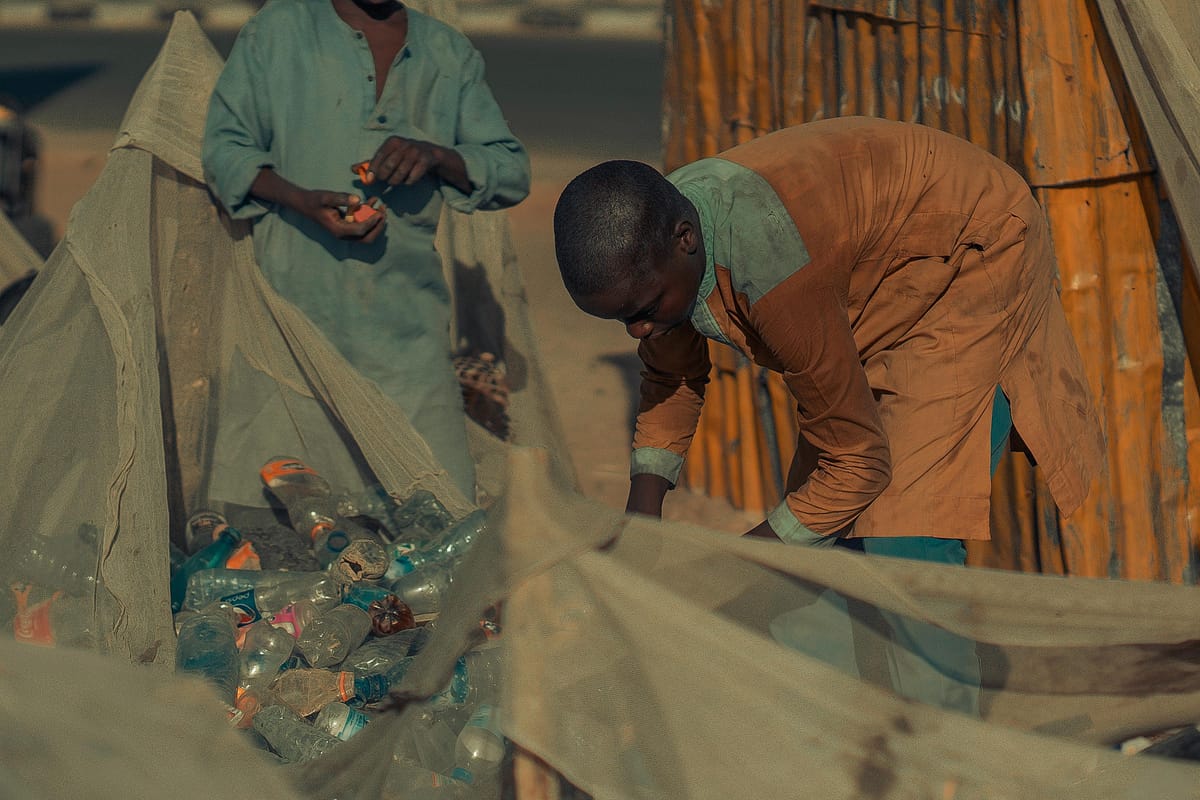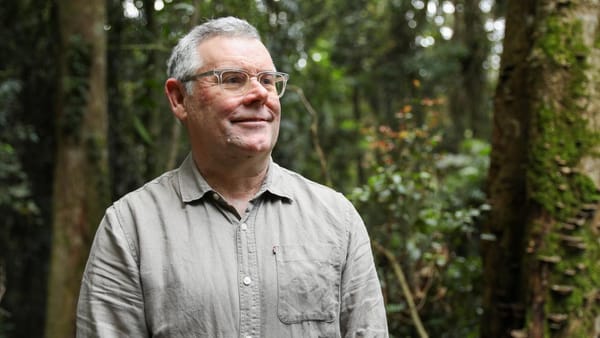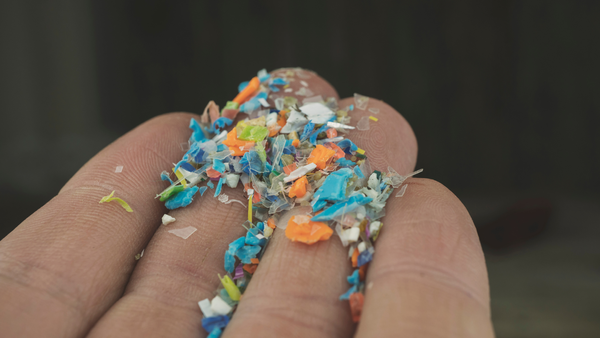Extended Producer Responsibility and a just transition to a circular economy
As the world finally confronts the growing plastic crisis, Extended Producer Responsibility (EPR) has emerged as a critical yet complex solution. A solution that will require careful and thoughtful planning and implementation if it is going to set us on the path to a circular economy.

In the global struggle against the plastic crisis, one policy tool stands out as the beginning of a solution and a baby step towards a circular materials economy: Extended Producer Responsibility (EPR).
As governments, businesses, and communities grapple with the vast scale of plastic waste that chokes our rivers, litters our landscapes, and even infiltrates our food supply and blood streams—EPR offers a structured and accountable approach to improving our predicament.
It's about holding producers accountable and ensuring that the products they design and put into the market can be managed sustainably throughout their entire lifecycle—from creation to disposal at end-of-life.
Why Extended Producer Responsibility is essential
The basic premise of EPR is simple: if companies profit from making and selling plastic products, they should also be accountable for collecting and managing the waste those products create.
EPR is a policy approach that holds producers accountable for the entire lifecycle of their products, particularly at the end-of-life stage. It goes beyond covering waste management costs; it incentivises producers to rethink how they design, use, and choose materials. By making products easier to recycle, reuse, or repair, EPR helps reduce waste at its source and will be a key step in the shift towards a genuine circular economy.
Everyone knows what the upcoming global plastic treaty must cover, and it starts with EPR.
The instrument must set clear criteria for plastic products, including phasing out unnecessary single-use and short-lived products—those that, all too often, pollute our ecosystems. It must also push for infrastructure and the design of products that are circular by nature, meaning that the plastic we do use can stay in our supply chains rather than pollute the environment.
Extended Producer Responsibility is a complex policy instrument. Different sectors (such as packaging, textiles, or electronics) will require their own strategies to manage the plastic they produce.
Packaging, in particular, is a major focus, as single-use packaging represents a significant proportion of plastic waste.
As such, the global treaty must also include sector-specific approaches to ensure each industry contributes to addressing its unique challenges.
EPR must encompass the entire value chain
Crucially, the global treaty must also address waste management from the view of the entire value chain. Managing the end-of-life stage of plastic products is essential, particularly for legacy plastics—those materials already out in the world, polluting our landscapes and oceans.
Even well-designed products can be problematic at end-of-life without investment in more circular waste management infrastructure and collection policies.
EPR plays a pivotal role here, as it can drive investment into waste collection, sorting, and recycling infrastructure. Producers would be incentivised to create products using designs and materials that are easier to recycle and contribute financially to the systems that manage these materials at the end of their life.
This model ensures that the burden of managing waste does not fall disproportionately on municipalities or consumers but on those who bring plastic products to the market.
A just transition for all
While EPR and waste management are critical, the treaty must also recognise the plastic crisis's human dimension.
Particularly important are the millions of informal waste pickers around the world. These individuals, often working under harsh conditions with little recognition or protection, play a vital role in collecting and recycling plastic waste. When much of the waste sent to these countries has been exported by developed and wealthy countries from the global north so the problem is out of sight and out of mind; this is nothing short of waste imperialism.
There are an estimated 20 million waste pickers globally, many of whom depend on this work for their livelihoods. A just transition means that as we implement new policies like EPR and move towards reducing plastic pollution, we do not leave behind the people and communities who have been doing the hard, toxic and dangerous work of managing waste in this informal sector.
The treaty must create pathways for these workers and their communities to benefit from better working conditions, access to new tech, and formal employment opportunities in the circular economy.
Accountability through transparency, data and harmonisation
None of these changes will happen without strong backing from governments and industry. The treaty must include innovative financial mechanisms supporting the shift towards a circular economy.
Producers must be held accountable through mandatory reporting and evaluation systems that track progress and ensure that EPR schemes work as intended.
These mechanisms are essential for transparency and tracking progress, but they need to be standardised across markets.
Global policies should be harmonised so that innovative B2B platforms can be developed that easily gather and analyse the required data and specifications to ensure that complying with these mandatory reporting and evaluation standards isn't too onerous.
After all, we want businesses to direct their resources towards being more sustainable and not caught up in overly complex reporting standards and compliance.
As the global treaty takes shape, it must lay the groundwork for long-term accountability and transparency, allowing for ongoing evaluation and adjustment.
History beckons
We can't kick this can down the road like we have with climate change and let future generations deal with it.
Humanity produces around 500 million metric tonnes of plastic annually, a shocking statistic predicted to triple by 2060. Plastic waste carpets our oceans and clogs up our rivers. Meanwhile, scientists are discovering more about how much is entering our bodies through food, water, and packaging and learning more about how this is affecting our health and disrupting our endocrine systems.
The environmental and health impacts are mounting and we don't need more studies to know that we must act now.
But there is hope.
At the 2022 UN Environment Assembly, a resolution was adopted to end plastic pollution, fueled by what has been called the "Nairobi Spirit." This spirit of collaboration and commitment must continue as we move towards final negotiations in Busan this November for a legally binding treaty.
We have a historic opportunity to course correct and establish a framework that holds producers accountable, reduces the production of unnecessary plastics, and ensures that the plastic we do need is managed responsibly.
Extended Producer Responsibility is an essential part of that framework, and its inclusion in the treaty will send a signal to the world that businesses need to get serious about tackling plastic pollution.
But the headwinds from the petrostates and the plastic industry are strong, with fossil fuel lobbyists outnumbering national delegations, scientists, and indigenous peoples at the INC-4 plastics treaty negotiations.
The writing on the wall for both transport and energy mega profits, so the fossil fuel industry is going all in on plastics.

An urgent call to action
As nations prepare to finalise a global treaty to end plastic pollution, the inclusion of Extended Producer Responsibility has to be a non-negotiable.
It is the key to ensuring that plastic stays in supply chains and out of the environment and that those who profit from plastic products also take responsibility for their end-of-life management.
But this isn't just about policy—it's about the future we want to build. A future where plastic pollution is no longer a threat to our health and ecosystems. A future where waste pickers are empowered and supported in a just transition. And a future where producers, consumers, and governments work together to create a circular economy that benefits everyone.
The time to act is now. As negotiations continue, it is up to the global business and sustainability communities to ensure that EPR and strong waste management policies and financial mechanisms are at the heart of this treaty.
Only then can we believe that this won't be yet another talk-fest and instead be something tangible that will set us on the path to reducing plastic pollution, laying down the foundations for a more circular economy, and paving the pathway to a regenerative future for our kids and the generations that follow.





